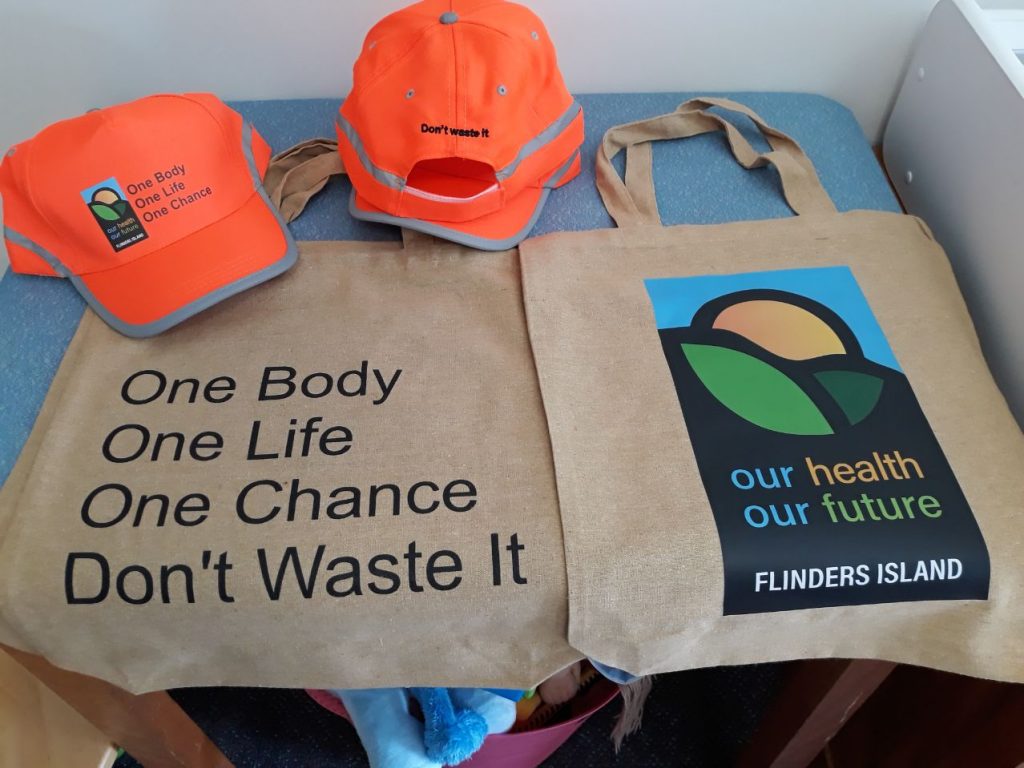Building effective support services on Flinders Island.
February 11, 2020
Community trust and good relationships are key to Anglicare’s work to improve the health and wellbeing of people on Flinders Island.
We have been delivering drug and alcohol support services on Flinders Island since 2017 and slowly building stronger relationships.
Our social worker, Katrina Bester, now spends at least two days a fortnight there.
“When I first started visiting there was a degree of suspicion. The locals have seen too many experts fly in for a while. They hand out advice and then leave, never to be heard from again,” said Katrina. “But I keep coming back”. Anglicare’s work on the island is based on requests from the community. Consequently local knowledge is guiding its implementation.
Flinders Island lies in Bass Strait and has a population of just under 1000, although this swells during the warmer months. The community is diverse, with farming, fishing and tourism the major industries. There are increasing numbers of ‘sea changers’ moving to Flinders Island, attracted by the beauty and isolation. But it is this very remoteness that makes the delivery of support services different to that on mainland Tasmania.
“Although there is a general hotline available for all Tasmanians to call for support, picking up the phone to speak with a stranger is not something people living in a remote place tend to do,” said Noel Mundy, Anglicare’s General Manager of Community Services. “But people will seek support from a provider located in their community if they feel they can trust them”.
Anglicare’s drug and alcohol support services on Flinders Island has three areas of focus, all of which are growing in demand.
First, there’s counselling available for individuals.
People can either be referred for counselling by their health care provider or make an appointment direct with Anglicare.
To start with we work with people to identify what they want to achieve in relation to their use of alcohol or other drugs.
“There are always underlying issues, it’s not just about alcohol and other drug support,” said Katrina. “This might be about their physical or mental health and safety, or their relationships with friends or family. Also, they may want to improve their financial situation”.
Once these reasons are identified, we support them to develop a plan to change their patterns of alcohol or drug use to minimise harm.
“My passion is all about helping others to develop their full potential,” said Katrina. “I get great joy about helping others to get to where they want to go and seeing communities thrive”.
Further, the service has a focus on community education.
This is all about empowering the community to respond to local concerns about drug and alcohol use. For this reason Katrina meets with different community groups and also works with schools. The school at Whitemark on Flinders Island has about 100 students from kinder to grade 12. And there’s also small primary school on Cape Barren Island.
Through these relationships she was invited to participate in ‘The Anticipatory Care Project’. This aims to support the current and future health of people in the Flinders Island community, and it is a collaboration between UTAS and the Flinders Island For Health Committee.
Part of this project focused on early intervention and prevention of alcohol-related harm. A poster competition was held for young people, with posters displayed and voted on by community. One of the poster slogans ‘One body, one life, one chance’, has been put onto caps and shopping bags and is being used to promote health at local events.
Finally, the service involves collaborating with local health care providers.
The involvement of the local GPs and nurses has been a critical step to making a difference to health and wellbeing outcomes on the islands. They refer people to the Anglicare service, and liaise with us for our expertise about addictions and drug withdrawal management.
Learn more about Anglicare’s alcohol and other drugs treatment service. Or call 1800 243 232.

